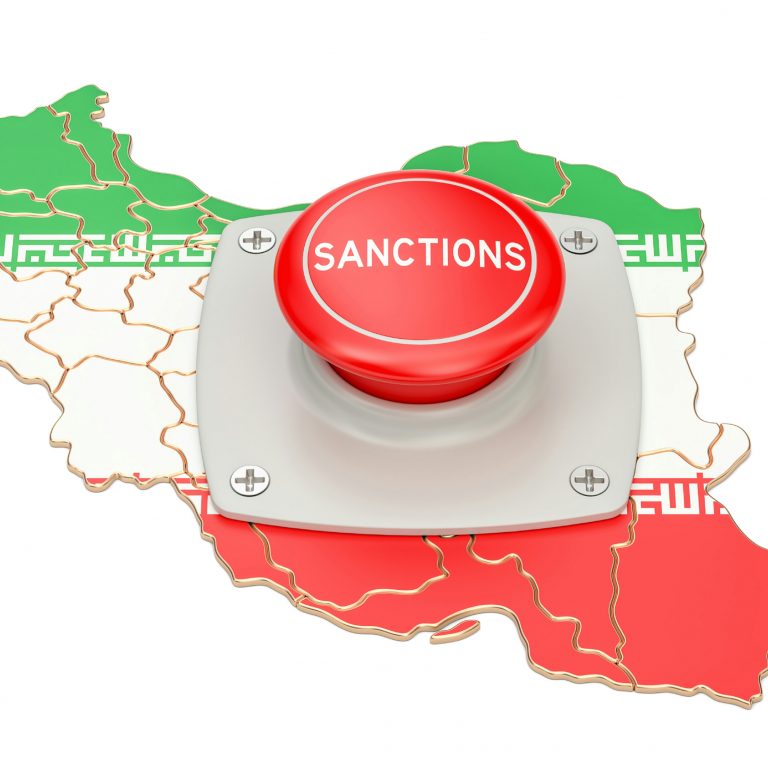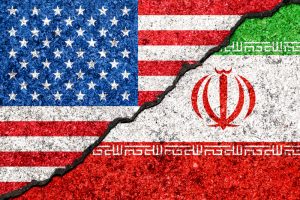Latest news about Bitcoin and all cryptocurrencies. Your daily crypto news habit.

A number of cryptocurrency exchanges have reportedly cut ties with Iran after the U.S. imposed tougher economic sanctions against the Islamic Republic. Sepehr Mohammadi, head of Iran’s Blockchain Community, told local media that Binance and Bittrex are some of the platforms to have unofficially dropped Iran from the list of supported countries to receive services.
Also Read: Bitcoin Miners Flock to Paraguay as Country Weighs its Developmental Options
Exchanges Impose Restrictions, but Assets Not Blocked
On Nov. 5, the U.S. announced severe economic sanctions against Iran that, with the exception of just eight countries, cut the rest of the world off from the country’s oil, shipping and gas market, including its financial system. An earlier round of sanctions in May targeted Iran’s currency, aviation industry and other sectors, as President Donald Trump broke away from his predecessor Barack Obama’s engagement with Tehran. Measures against the financial system are expected to hinder any kind of trade with Iran.
Speaking to IBENA, an Iranian news agency affiliated to the country’s central bank, Mohammadi said “some virtual currency exchanges have imposed restrictions on Iranian users, but no assets belonging to Iranians have been blocked.” The measures mean that people in Iran will no longer be able to trade cryptocurrencies across borders, limiting trade to a domestic market where bitcoin is sold at a significant premium relative to the global average price. It was not immediately clear which other exchanges had stopped offering services to Iranians.
This will not be the first time that U.S. economic sanctions have struck at the heart of Iran’s cryptocurrency industry. In July, after the first round of sanctions, Mohammadi accused Donald Trump’s administration of stifling growth in Iran’s digital currency sector, claiming that the U.S. government confiscated about $6 million worth of Iranian-owned BTC. He said then:
Last year (2017), the remarkable volume of bitcoin which belonged to some Iranians was confiscated due to unspecific reasons by the Federal government of the United States, and the process of confiscation is still continuing.
The Iran Blockchain Community chairmain indicated at the time that owners of the confiscated BTC were unable to take legal action against the U.S. inside Iran, as cryptocurrencies were banned in the country. The Central Bank of Iran in April banned Iranian banks from dealing in foreign cryptocurrency citing money laundering and terrorism financing risks, but later rescinded the decision after gauging the full effect of the sanctions.
Announcing the sanctions on Monday, U.S. Secretary of State Mike Pompeo warned: “It should be noted that if a company evades our sanctions regime and secretly continues sanctionable commerce in the Islamic Republic, the U.S. will levy severe, swift penalties on it, including potential sanctions. I promise you that doing business with Iran in defiance of our sanctions will ultimately be a much more painful business decision than pulling out of Iran entirely.”
State-Backed Digital Currency
Iran, the world’s third largest oil producer, is hoping to leverage cryptocurrencies to compensate for the expected squeeze in petrodollars arising from the economic sanctions designed to cut oil sales from the country, the economy’s lifeblood. Brigadier General Gholam Reza Jalali, head of Iran’s Civil Defense Organization, has talked about the “great opportunities” presented by cryptocurrencies, in the latest indication that Tehran is developing a state cryptocurrency.
“Cryptocurrencies can help bypass certain sanctions through untraceable banking operations,” Jalali told the state media in October. He also emphasized the need for formation of a national cryptocurrency that can be used whenever necessary. The state-backed virtual currency will be similar to bitcoin in that transactions are carried out on an online ledger called a blockchain, but it will not be possible for people to mine it because the infrastructure will be private. The country has also approved plans for cryptocurrency mining for the national good.
What do you think about the effect of U.S. sanctions on the cryptocurrency industry in Iran? Let us know in the comments section below.
Images courtesy of Shutterstock.
Verify and track bitcoin cash transactions on our BCH Block Explorer, the best of its kind anywhere in the world. Also, keep up with your holdings, BCH and other coins, on our market charts at Satoshi’s Pulse, another original and free service from Bitcoin.com.
Disclaimer
The views and opinions expressed in this article are solely those of the authors and do not reflect the views of Bitcoin Insider. Every investment and trading move involves risk - this is especially true for cryptocurrencies given their volatility. We strongly advise our readers to conduct their own research when making a decision.

